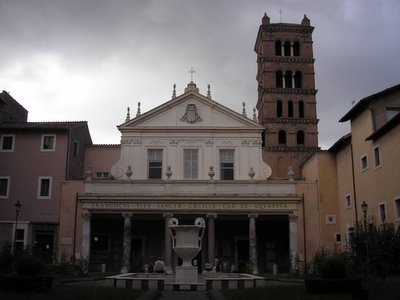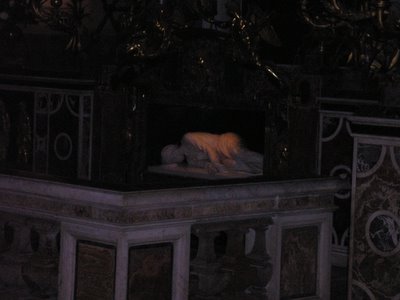No Direction Home
I saw one of the best correctives I've come across in a while to academic extravagance in mountain-out-of-a-molehill-making (often in evidence in my own papers) while watching part two of Scorsese's recent Bob Dylan bio-pic No Direction Home. During the footage of a 1965 press conference in San Francisco, a reporter tries to inquire into the 'significance' of the Triumph Motorcycle t-shirt he is wearing on the cover of Highway 61 Revisited, telling him that there is a 'philosophy' embedded in it. Dylan's response is to laugh and tell the reporter he hasn't really spent a lot of time looking at it (the reporter says he has spent a lot of time looking at it) and says it was just a picture somebody took one day while he was sitting on the steps.
Not one to give up, the reporter asks if he can talk about the meaning of the motorcycle image in his song-writing. Dylan's only response to this is, 'Well, we all like motorcycles, don't we?', or something to that effect.
The moral of this story is: sometimes a t-shirt is just a t-shirt. I have to remind myself of that sometimes, when puzzling over individual words in a poem and attempting to make an entire interpretation hang on what, to the author, might have been a rather insignificant detail. That doesn't mean these details are always insignificant, but it seems good at least to pause over them, to take a step back and ask the more general questions: does this interpretation I'm gleaning from this one word make sense in the broader scope of the poem? How does it fit in with the whole body of data I'm working with? Would the author have used the word in this way and with this significance? What is his normal practice? How does he mark what is important and what is not in his poem, if at all? Am I foisting my own intent on the author, trying to make a square poem fit in a round hole, as it were? Or does it cohere with the rest of the work?
Ok. I'm done babbling. But it is always nice to find a reminder in a surprising place which causes some reflection on the pitfalls of interpretation--one which pulls me for a moment from the hermetically-sealed bubble in which I often attempt to work with ancient texts out into the wider world.


